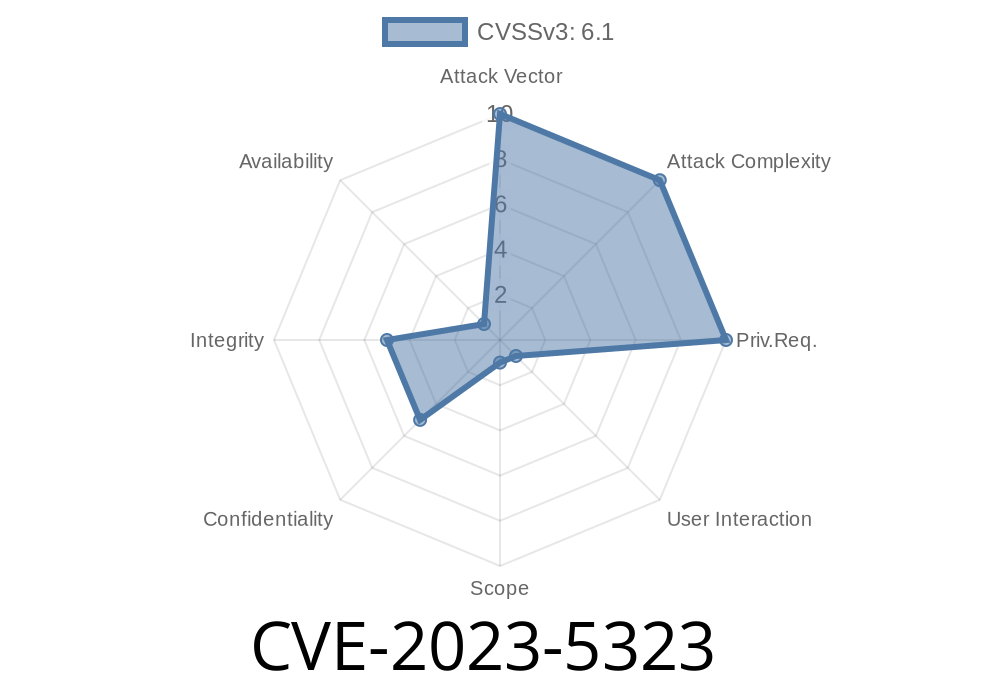One of the internet's oldest security problems is Cross-site Scripting (XSS). In 2023, a new vulnerability—CVE-2023-5323—was found in the very popular open-source business suite, Dolibarr. This XSS issue affects all Dolibarr versions up to 17.x. In this article, I’ll break down what this vulnerability is, demonstrate how it works, and show you how you can test and protect yourself. I’ll also provide code snippets, examples, and key references.
What Is Dolibarr?
Dolibarr is a modern ERP and CRM that smooths out business management for thousands of companies worldwide. Its open-source nature makes it popular but also a common target for attackers seeking vulnerabilities.
Vulnerability Type: Cross-site Scripting (XSS) — Generic
- Affected Product: Dolibarr/dolibarr (all versions prior to 18.)
Impact: Allows attackers to execute arbitrary JavaScript in the victim’s browser
- CVE Advisory: NVD - CVE-2023-5323
- GitHub Advisory: GHSA-xvg4-3vw6-8q6c
What’s The Risk?
An attacker can inject a payload (malicious script) that is stored or reflected back in the Dolibarr web application. When a legitimate user accesses the affected module/page, the script gets executed in their session, stealing credentials, performing unwanted actions, or redirecting to malicious sites.
Where’s The Flaw?
The Dolibarr codebase failed to *adequately sanitize user input* in certain user-facing fields and views. The filters expected to prevent script injection weren’t enough—legacy code or missed places in the codebase led to exploitable XSS vectors.
For context, this commonly happens when user-supplied data (GET/POST/URL parameters) are rendered in a web page without escaping special HTML characters.
Here’s a simplified, generic example inspired by real flaws in similar systems
<?php
// In some PHP view file
echo "<input type='text' name='company' value='" . $_GET['company'] . "'>";
?>
If Dolibarr simply echoed user input (like a company name field) into an HTML page without encoding, a URL like this could exploit the XSS:
https://vulndolibarr.example.com/somepage.php?company='"><script>alert('XSS')</script>;
The page would produce
<input type='text' name='company' value='"><script>alert('XSS')</script>'>
And the script would fire as soon as the page loaded.
1. Find An Input That Reflects Data
Look for fields, search bars, profile edits, or any place your input is echoed back to you on the Dolibarr site.
Here’s a safe demonstration payload for testing
"><script>alert('XSS')</script>
Example Exploit URL
https://target.com/dolibarr/index.php?mainmenu="><script>alert('XSS')</script>;
If that triggers a pop-up, Dolibarr is reflecting input unsafely.
Security Fix
Dolibarr 18. and above has patched this issue. The fix involved proper escaping of user input and refactoring of legacy code.
- Official Patch: Release Notes for 18.
`php
// Secure rendering example
echo "";
Use a Web Application Firewall (WAF): To filter malicious requests.
3. Code Review: If you use plugins, custom fields, or extensions, make sure they also escape user input.
References & Further Reading
- NVD Detail - CVE-2023-5323
- GitHub Security Advisory
- Dolibarr Release 18..
- OWASP XSS Cheat Sheet
Conclusion
CVE-2023-5323 is a classic example of how dangerous even a “simple” XSS vulnerability can be. If you run Dolibarr—or manage software with user-generated input—be vigilant about encoding, sanitizing, and keeping up-to-date. Patching and good security hygiene are your best defenses!
Timeline
Published on: 10/01/2023 01:15:00 UTC
Last modified on: 10/02/2023 20:26:00 UTC
